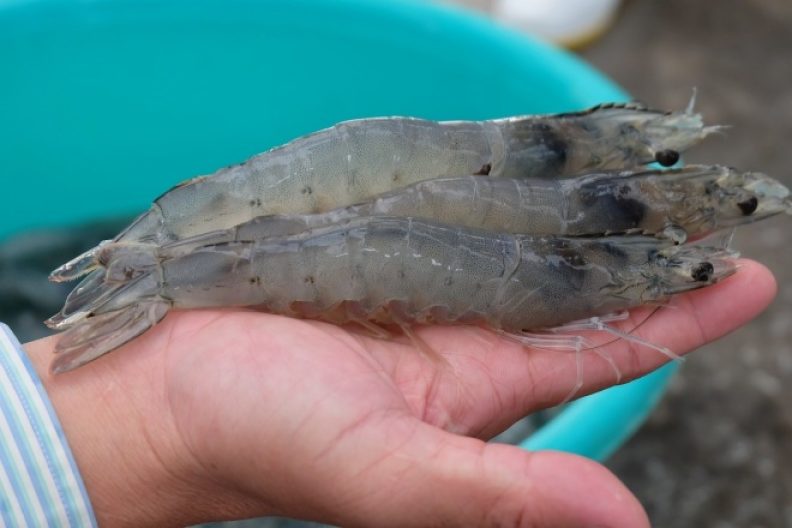Period
03/2020 - 02/2027


The SHRIMPS project aims to reduce freshwater consumption, wastewater, CO2 emissions and pollutant inputs as well as achieve farms’ greater resilience to the impacts of climate change. It will also improve the economic situation of rural areas in the Mekong region, contribute to greater energy security, promote sustainable shrimp breeding methods and create a platform for international and interdisciplinary knowledge transfer.
The project consists of three phases:
Phase 1: Development of SHRIMPS Systems
• Doing research on the most promising production techniques and developing a concept for the following phases accordingly, which takes into account the photovoltaics (PV) level
• Investigating the load-bearing capacity of the Vietnamese shrimp company’s production halls and developing the hall structure’s necessary reinforcements
• Exanimating and evaluating (i) the pilot plant’s grid construction and connection, internal upscaling & external downscaling, (ii) the legal ground to clarify land use related issues
Phase 2: Installation of SHRIMPS Pilot Plant
• Placing the pilot plant with the installed capacity of approximate 100kWp on the Vietnamese shrimp company’s site in the Mekong Delta province of Bac Lieu
• Using the plant to demonstrate the potential of aqua-PV for shrimp breeding using the bio floc process
Phase 3: Monitoring, Evaluation and Rollout
• Monitoring the prototype to ensure that the constructed plant is reliable and can be used as a reference for industry not only in Viet Nam but also in other countries
• Transferring the aqua-PV systems to small and medium-sized enterprises in the Mekong region, with particular emphasis on the region’s social conditions and economic situation
German Federal Ministry of Education and Research (BMBF)

German Federal Ministry of Education and Research (BMBF)
The SHRIMPS project aims to reduce freshwater consumption, wastewater, CO2 emissions and pollutant inputs as well as achieve farms’ greater resilience to the impacts of climate change. It will also improve the economic situation of rural areas in the Mekong region, contribute to greater energy security, promote sustainable shrimp breeding methods and create a platform for international and interdisciplinary knowledge transfer.
The project consists of three phases:
Phase 1: Development of SHRIMPS Systems
• Doing research on the most promising production techniques and developing a concept for the following phases accordingly, which takes into account the photovoltaics (PV) level
• Investigating the load-bearing capacity of the Vietnamese shrimp company’s production halls and developing the hall structure’s necessary reinforcements
• Exanimating and evaluating (i) the pilot plant’s grid construction and connection, internal upscaling & external downscaling, (ii) the legal ground to clarify land use related issues
Phase 2: Installation of SHRIMPS Pilot Plant
• Placing the pilot plant with the installed capacity of approximate 100kWp on the Vietnamese shrimp company’s site in the Mekong Delta province of Bac Lieu
• Using the plant to demonstrate the potential of aqua-PV for shrimp breeding using the bio floc process
Phase 3: Monitoring, Evaluation and Rollout
• Monitoring the prototype to ensure that the constructed plant is reliable and can be used as a reference for industry not only in Viet Nam but also in other countries
• Transferring the aqua-PV systems to small and medium-sized enterprises in the Mekong region, with particular emphasis on the region’s social conditions and economic situation
